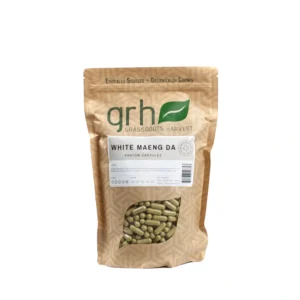In today’s fast-paced world, self-care has become an essential practice for maintaining balance, health, and mental clarity. While many methods for wellness exist, herbal supplements have gained significant popularity as a natural and holistic approach to enhancing overall well-being. From boosting immunity to relieving stress and promoting better sleep, these plant-based remedies offer a diverse range of benefits that cater to the individual needs of modern lifestyles. In this comprehensive guide, we’ll explore how herbal supplements fit into contemporary self-care routines, their various benefits, and what to consider when integrating them into your personal wellness journey.
Herbal supplements are plant-based products designed to support health and wellness by harnessing the natural properties of various herbs. These supplements come in various forms, such as capsules, powders, teas, and tinctures, and are typically derived from leaves, roots, seeds, or flowers of medicinal plants. For centuries, many cultures have relied on these natural remedies to treat ailments, boost immunity, and enhance overall well-being. Today, herbal supplements have become a popular component of self-care routines due to their holistic and gentle approach to health, offering an alternative to synthetic pharmaceuticals.
The way herbal supplements work largely depends on the specific plant and its active compounds. Some herbs, like echinacea and elderberry, are known for their immune-boosting properties, while others, such as ashwagandha or chamomile, are used to relieve stress and promote relaxation. The active ingredients in herbs interact with the body’s systems, either stimulating or balancing functions like digestion, immunity, or hormonal balance. However, for optimal results, it is important to select high-quality supplements and understand proper dosing, as each herb has unique properties and effects on the body.
Incorporating herbal supplements into your self-care routine can offer numerous benefits, enhancing both physical and mental well-being. As natural remedies, these supplements provide gentle yet effective support for various health needs without the harsh side effects often associated with synthetic medications. Herbal supplements work in harmony with the body’s systems, making them an ideal choice for individuals seeking a more balanced approach to health and wellness.
These key benefits make herbal supplements an essential part of a holistic self-care regimen, helping individuals achieve better health through natural, plant-based solutions.
Herbal supplements have become essential in self-care routines, offering natural solutions for a variety of health needs. Each herb has its own unique benefits, from enhancing immunity to improving sleep and reducing stress. Understanding how these popular herbal supplements work can help you better tailor them to your personal wellness goals. Here are some of the most commonly used herbs and their specific benefits.
Echinacea is widely known for its immune-boosting capabilities. Frequently used to prevent and treat colds, this herb enhances white blood cell activity, helping the body fend off infections. Regular use during flu season can strengthen your immune defense naturally.
Ashwagandha is an adaptogen that helps regulate cortisol levels, promoting relaxation and reducing anxiety. It’s excellent for those dealing with stress or burnout, as it supports mental well-being while also balancing energy levels without causing overstimulation.
Ginkgo biloba is prized for its ability to enhance cognitive function. It improves blood circulation to the brain, which boosts memory, focus, and mental clarity. Ginkgo is also used to support long-term brain health, making it a popular choice for improving mental performance.
Turmeric’s active ingredient, curcumin, is known for its powerful anti-inflammatory and antioxidant properties. It is commonly used to alleviate inflammation, particularly in people with joint pain or arthritis. Turmeric also aids in protecting cells from oxidative stress, promoting overall health.
Kratom is gaining attention for its dual benefits as both a pain reliever and an energy enhancer. Depending on the strain, kratom can either provide a calming effect or stimulate energy, making it a versatile herb. It’s often used for managing chronic pain, boosting mood, or increasing physical endurance naturally.
Valerian root is well-known for promoting better sleep. It soothes the nervous system and helps those suffering from insomnia or disrupted sleep patterns to achieve restful sleep. Unlike pharmaceutical sleep aids, valerian works naturally without leaving users groggy the next morning.
These popular herbal supplements offer a variety of benefits, making them ideal for addressing specific health concerns while supporting overall well-being. Whether you’re seeking stress relief, improved sleep, or cognitive enhancement, these herbs can be an invaluable addition to your self-care routine.
Herbal remedies offer powerful support for maintaining and improving physical health, particularly in areas like immunity, digestion, and energy levels. Herbs like echinacea and elderberry are well-known for their immune-boosting properties, helping the body defend against infections and seasonal illnesses. These natural immune enhancers work by stimulating the production of white blood cells, which are essential for fighting off viruses and bacteria. Incorporating immune-supporting herbs into your daily routine can provide a natural defense system, particularly during flu seasons or periods of increased stress.
In addition to immunity, herbal remedies can aid in digestion and energy production. Herbs such as ginger and peppermint are highly effective in promoting healthy digestion, alleviating bloating, and reducing discomfort from indigestion. Meanwhile, energy-boosting herbs like ginseng and maca provide a natural, sustained increase in vitality without the crash often associated with caffeine or synthetic stimulants. These herbs not only support physical endurance but also help maintain balanced energy levels throughout the day, making them an ideal addition to your self-care routine for optimal physical health.
With the growing popularity of herbal supplements, selecting high-quality products that are both safe and effective is crucial for maximizing health benefits. Not all herbal supplements are created equal, and the market can sometimes be flooded with low-quality or mislabeled products. Choosing reputable brands and understanding what to look for can help you make informed decisions when incorporating these remedies into your self-care routine. By paying attention to key factors such as sourcing, formulation, and certifications, you can ensure that the herbal supplements you choose are reliable and beneficial.
By following these guidelines, you can confidently select herbal supplements that support your well-being while ensuring safety and efficacy in your self-care practices.
Incorporating herbal supplements into your daily self-care routine can be a simple yet transformative way to support your health and well-being. The key to making these supplements effective is consistency and mindfulness. Start by identifying the areas of your life where you need the most support—whether it’s boosting energy, improving sleep, managing stress, or enhancing digestion. Once you’ve pinpointed your needs, select the appropriate herbal supplements, such as ashwagandha for stress relief or turmeric for inflammation, and begin incorporating them into your morning or evening routines. Whether taken as capsules, tinctures, or teas, these supplements can seamlessly fit into your lifestyle without adding too much complexity to your day.
To maximize the benefits, it’s important to follow recommended dosages and monitor how your body responds over time. Herbal supplements often work best when taken consistently, as their effects are gradual and build up in the body. You can also enhance their effectiveness by pairing them with other wellness practices, such as regular exercise, a balanced diet, and mindfulness techniques. By integrating herbal supplements into your self-care regimen thoughtfully, you’ll not only address specific health concerns but also create a more holistic and balanced approach to your overall wellness.
Herbal supplements have become a vital part of modern self-care, offering natural solutions for physical and mental well-being. From boosting immunity with echinacea to relieving stress with ashwagandha, these plant-based remedies provide a holistic approach to health that complements other wellness practices. By carefully selecting high-quality supplements, understanding their specific uses, and integrating them into your daily routine, you can unlock their full potential to support your overall wellness.
When it comes to finding the right herbal products, especially kratom, GRH Kratom is your best option. Known for its superior quality and commitment to safety, GRH Kratom offers a wide selection of kratom products that can help with pain relief, energy, or relaxation. For more information and to explore our range, be sure to visit our website, where you can also easily contact us for personalized recommendations.
What are herbal supplements and how do they work? Herbal supplements are natural products made from plants that are used to support various aspects of health and well-being. They work by harnessing the beneficial compounds found in herbs to enhance bodily functions or address specific health concerns. Each herb has unique properties and effects, such as boosting immunity or aiding digestion.
How do I choose high-quality herbal supplements? To select high-quality herbal supplements, look for products that have been third-party tested for purity and potency. Choose brands with a reputation for transparency and quality. Ensure the supplements contain standardized extracts and avoid those with unnecessary fillers or additives. Consulting with a healthcare provider can also help in making informed choices.
What are some popular herbal supplements and their benefits? Popular herbal supplements include echinacea for immune support, ashwagandha for stress relief, ginkgo biloba for cognitive function, turmeric for inflammation, and valerian root for sleep aid. Each herb offers specific benefits, such as boosting energy, enhancing mental clarity, or improving digestion.
How can I integrate herbal supplements into my daily routine? Start by identifying your specific health needs and selecting appropriate herbal supplements to address them. Integrate them into your daily routine by following recommended dosages and incorporating them into your meals or as part of your morning or evening rituals. Consistency is key to experiencing their full benefits.
Are there any risks associated with using herbal supplements? While herbal supplements are generally safe, they can interact with medications or have side effects if not used correctly. It’s important to research each herb, follow dosage instructions, and consult with a healthcare provider, especially if you have underlying health conditions or are taking other medications.




Copyright © 2024 – All Rights Reserved – Terms & Conditions – Privacy Policy
Please note that the material presented on this site is intended solely for informational purposes and should not be relied upon as the sole basis for decision-making. It is advisable to consult multiple sources before making any decisions. These products are not intended to prevent, treat, cure, or diagnose any disease. We do not assert any legal claims or offer legal advice. While we strive to provide accurate and up-to-date information, the complexities of legal matters regarding Kratom may vary. The legal age to buy kratom varies by state, please ensure you meet the legal age requirements before making a purchase. Using Kratom daily is not advisable. To prevent the development of tolerance and dependency, use it responsibly and integrate regular breaks into your consumption. Individuals with underlying health conditions, pregnant or nursing women, and those currently taking medications should seek guidance from qualified healthcare professionals before incorporating Kratom into their routine. Please be aware that the U.S. Food and Drug Administration (FDA) has not lawfully marketed Kratom as a dietary supplement, and that we do not ship to states and cities where Kratom is prohibited by law.